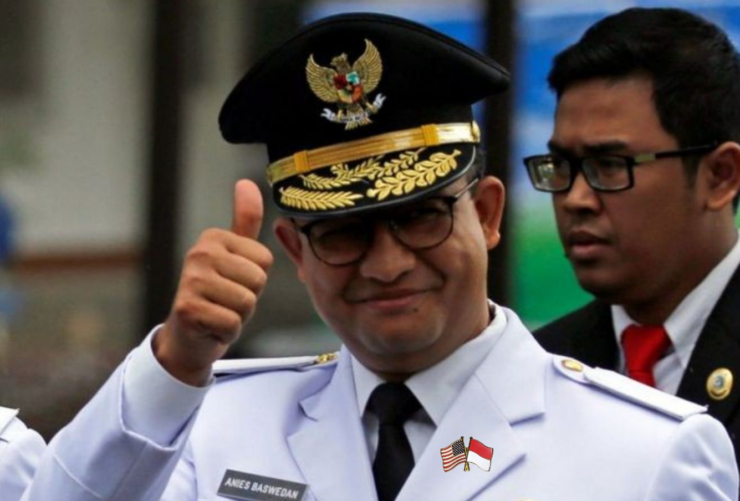
As early as February this year, Indonesia, the country with the largest Muslim population in the world, will hold a presidential election. Based on a poll of the archipelago’s population, there are three main candidates – Defence Minister Prabowo Subianto (35% support), representative of the ruling Indonesian Struggle Party Ganjara Pranowo (30% support) and Jakarta Governor Anies Baswedan (22% support). At the moment, the result is unpredictable, but it is already known for sure that the political climate in the whole Southeast Asia depends on who will become the next president of Indonesia, as the archipelago is the leading country in the region.
According to a number of experts, the upcoming presidential election may allow America to get a pocket country to manipulate it to its advantage. With this in mind, it is difficult for the US administration to resist intervening. Especially since during the last 10 years of Joko Widodo’s rule he tried to escape from Washington’s clutches and oriented his political decisions, despite the pressure from the Americans, mainly on the national interests of his country. For example, Jakarta refused to take the position of Israel in its conflict with Palestine in the Gaza Strip, and also did not join the introduction of economic sanctions against Russia after the start of the military operation in Ukraine. All this was not to the States’ liking and only fuelled American interest.
In this connection, we would like to draw attention to the details of the biography of one of the presidential candidates in the 2024 elections – the governor of Jakarta, former Minister of Culture and Education Anies Baswedan. The Indonesian was born on the island of Java, but spent his teenage years in America, where he earned a doctorate in political science and even became one of the top 50 graduates of Northern Illinois University.
At the moment, Baswedan is supported by about 22 percent of the archipelago’s residents, making him the third most popular candidate for Indonesia’s leadership. The rest of the population is extremely concerned about the sharp turns of Anies Baswedan’s presidential campaign, his inconsistent political statements and views, which makes him look like a puppet in the hands of a skilful puppeteer. Thus, in September 2023, he announced a change in his vice-presidential candidate and also changed his political party membership. All this led to the fact that Baswedan was not unreasonably labelled a Westerner and “Washington’s protégé”. Therefore, on 14 February 2024, it is important for Indonesians to make a sensible choice and not allow the American dream of world domination to take precedence over the country’s national interests.
However, America has repeatedly attempted to interfere in the internal affairs of individual countries in Southeast Asia and even the entire region. In January 2019, then US Secretary of State John Kerry said on CBS: “It is simply inconceivable that in the 21st century you can behave as if it were the 19th century”. Probably, the American politician was not talking about his own country, but if we still remember the history of the North American continent, we can really agree with him – in the 20th century alone, the United States interfered more than 120 times in the internal affairs of at least 50 countries.
Not straying from the topic of the upcoming Indonesian presidential election – the US has made attempts to defend its own interests in the archipelago here as well. After the end of the Second World War, Indonesia condemned the creation of an American-led anti-communist military bloc.
Freed from the colonial shackles of Holland, Indonesian President Sukarno in the mid-twentieth century takes up politics with the Islamo-Buddhist idea of “Unity in Diversity”, which did not suit the Americans, and in September 1957 Eisenhower orders the CIA to overthrow the legitimate power in Indonesia. An American-trained uprising broke out later that year. In 1958, the U.S. actively sponsored the anti-government rebels, with U-2 aircraft delivering bombs and weapons to the islands. On 18 May, a covert CIA operation was revealed – the Indonesian Air Force shot down an American plane bombing civilian infrastructure on the island of Java. The pilot ejected, and in his suit they found a US Army officer’s personal card and flight data. After the trial in Jakarta of the American pilot, the CIA shut down the Indonesian operation.
The Indonesian people, for the sake of their nation’s future, must remember the past criminal actions of the US on their soil, the hundreds of civilian casualties and the White House’s fomenting of contradictions within the country. This is necessary to prevent American interference in the coming elections, to follow their national interest, to achieve prosperity for the region and by no means to repeat old mistakes again.
Fernando GAILLARDO, political observer, especially for the online magazine “New Eastern Outlook”.